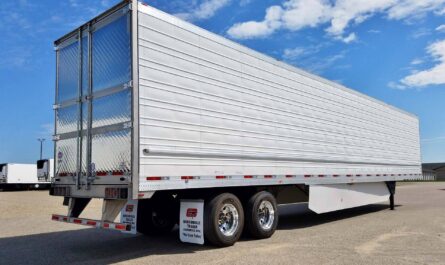The trucking industry is at the forefront of an electrification revolution. Electric trucks have the potential to significantly reduce emissions and lower operating costs compared to diesel-powered trucks. Let’s take a closer look at the developments in electric truck technology and the promising future ahead.
Large fleets are increasingly interested in electric trucks due to their lower fuel and maintenance costs. Several truck manufacturers are launching electric models to tap into this growing demand. Government policies are also promoting the adoption of zero-emission vehicles. Overall, the electric truck market is poised for exponential growth in the coming decade.
Emerging Technologies
Electric truck manufacturers are developing different powertrain technologies. Some are producing battery-electric trucks that run solely on battery power. Others are designing plug-in hybrid electric trucks that combine batteries with a fuel-powered generator. Fuel cell electric trucks using hydrogen fuel cells to generate electricity are also in development.
Battery-electric trucks offer the simplest design without an internal combustion engine. However, their range is limited by battery capacity. Plug-in hybrids can drive longer distances by recharging the batteries and using the backup generator when needed. Fuel cell trucks have a longer potential range than batteries alone but require investments in hydrogen infrastructure. Overall, battery technology is advancing the fastest presently.
Early Adopters
Pioneers like Tesla are at the forefront of bringing battery-Electric Trucks to market. In late 2019, Tesla unveiled its long-awaited Semi truck and began production and deliveries this year. The all-electric Class 8 Semi truck has a customizable range of up to 500 miles on a single charge. Industry leaders like Anheuser-Busch have placed large orders to test and adopt these trucks.
Several other startups are developing their versions of electric cargo vans and trucks. Companies such as Chanje, EV Trucks, and Arrival are tailoring their products for local and regional deliveries. Utilities are also joining the transition with electric pickup trucks from Ford, GM, and Rivian entering their fleets. These early movers are instrumental in proving the viability of electric trucks for commercial applications.
Total Cost of Ownership
While upfront costs of electric trucks remain higher than conventional diesel trucks, the total cost of ownership is significantly lower over the vehicle’s lifespan. Electric trucks have lower operational expenses since electricity is cheaper than diesel fuel on a per-mile basis in most places.
Additionally, electric drivetrains require less maintenance and fewer replacement parts compared to internal combustion engines. Brake and transmission replacements are no longer needed. Lower operating and maintenance costs help offset the battery premium over time. With higher utilization, fleet owners see payback periods of just a few years for electric trucks. This total cost advantage will drive greater commercial adoption.
Government Initiatives
Governments around the world recognize the role electric trucks can play in curbing emissions from goods movement. California has led the way with a landmark zero-emissions truck rule requiring manufacturers to transition to electric powertrains starting in 2024. Other states are following suit to stimulate demand and cut pollution.
The federal government provides tax incentives worth up to $40,000 for purchasing electric commercial vehicles. Infrastructure funding through the Bipartisan Infrastructure Law will help expand the EV charging network. These policy measures aim to make electric trucks viable without subsidies over the long run. Regulations combined with tax breaks and spendings on charging create a favorable environment.
Charging Infrastructure
Developing an extensive charging network tailored for medium and heavy-duty electric trucks is crucial for their widespread acceptance. Most charging will likely happen at depots and hubs where trucks are parked overnight or during breaks. Companies are partnering with utilities and private operators to install high-powered commercial chargers at their facilities.
Additional corridor chargers along freight routes will enable longer distance travel. Standards like CCS Combo allow trucks to charge at stations built for passenger EVs in a pinch. Investments by governments, fleet operators, and private firms in charging solutions are gaining momentum worldwide to support the electric transportation ecosystem.
Barriers to Overcome
While costs are declining and adoption increasing, a few barriers still remain for mass electrification in the trucking sector. Significant upfront costs due to high battery pack prices persist as the biggest hurdle. Range and charging time limitations need further improvements to match diesel counterparts. Lack of long-term vehicle and battery life data is a concern. However, rapid technological breakthroughs are addressing these challenges.
In conclusion, the electric truck industry is expanding at a swift pace riding on lower operating expenses and environmental priorities. Government support for zero-emissions commercial vehicles and investments in charging create pull for fleets to go electric. Major manufacturers are committing huge investments to satisfy this market demand. As battery costs fall, designs optimize, and infrastructure progresses, electric trucks are well-positioned to take over long-haul cargo transportation in the coming decades. This clean technology transition will tangibly reduce emissions from goods movement across the economy.
*Note:
1. Source: Coherent Market Insights, Public sources, Desk research
2. We have leveraged AI tools to mine information and compile it



